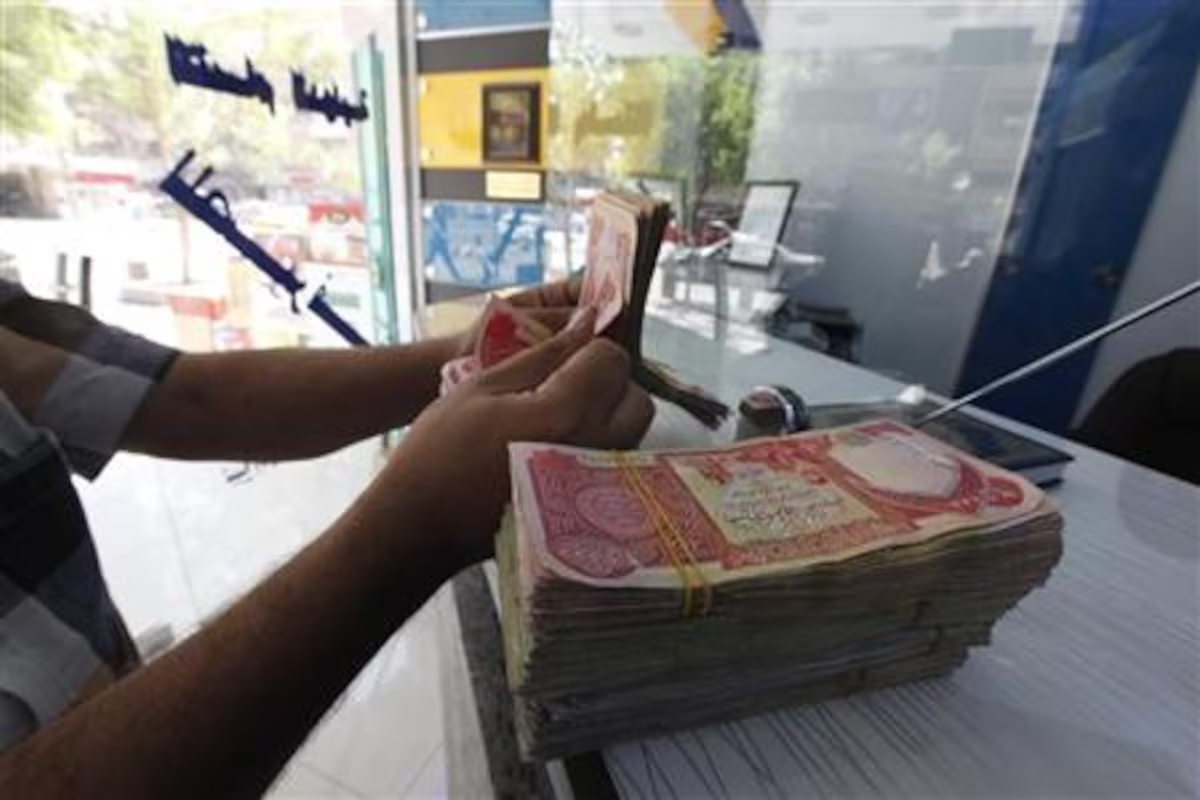
The volume of deposits in Iraqi commercial banks decreased to the lowest level in 22 months
The closure of the Central Bank’s dollar transfer platform at the beginning of the year caused the withdrawal of large deposits
A third of Iraqi commercial banks are blacklisted by the United States
The Central Bank of Iraq’s closure of the dollar transfer platform caused the departure of financial deposits, whether from individuals or companies, for fear that the banks that were holding their money might go bankrupt and be unable to repay their deposits, because the procedures of those banks were not consistent with the requirements of the Central Bank of Iraq and the US Department of the Treasury.
According to Central Bank data, the volume of deposits in commercial banks in Iraq shrank to the lowest level in 22 months, to 123 trillion Iraqi dinars last November, compared to 127.5 trillion in October. The volume of deposits decreased by 7 trillion dinars in six months (from June to November 2024), which reflects a continuing trend towards declining levels of savings in the banking system in recent months.
(The official exchange rate for the dollar is 1,310 dinars. The market price is approximately 1,500 dinars)
Since the beginning of 2023, the Central Bank of Iraq has been directly monitoring financial transfers in dollars through a special platform with the aim of reorganizing financial transfers to Iraqi banks, so that it allows proactive monitoring instead of the subsequent monitoring that the US Federal Reserve was carrying out by auditing daily transfers, but this year it decided to end This platform will be operational starting from the beginning of this year.
The United States blacklisted 14 Iraqi banks, representing half of all banks in the country, and prevented them from conducting dollar transactions on suspicion of using them for money laundering and transferring funds to Iran and Syria.
The authorized director of the “Iraqi Deposit Insurance Company,” Walidy Aidi, said in an interview with “Al-Sharq” that “the company senses the presence of fear among depositors in banks that were subjected to sanctions issued by the US Treasury Department.” He added that the statistical figures indicate that “many depositors, especially merchants, were able to withdraw their money and deposit it in accounts with government or non-sanctioned banks in order to continue their business and remove the concerns and fear they feel.”
But Eidi confirmed that “the company has not yet received any compensation claims from depositors in any bank,” stressing that the compensation is linked to the issuance of a decision by the Board of Directors of the Central Bank of Iraq declaring a specific bank bankrupt, and “such a decision has not been issued yet.”
International restrictions
According to Safwan Qusay, professor of the College of Administration and Economics at Al-Mustansiriya University, the international restrictions imposed on some Iraqi banks did not prevent them from compensating for the lost profits from international transfers in dollars, as they resorted to operating their existing deposits in various income-generating economic sectors,
In addition to starting reform processes in these banks in order for them to be internationally accepted, it is likely that opening the hedging window on the Iraqi dinar in these banks will increase deposits and move liquidity from outside the banks to inside them, even if gradually.
The authorized director of the “Khaleej Commercial Bank”, Adel Nouri, admitted in an interview with “Al-Sharq” that there is an impact on the bank’s deposits, which amount to 210 billion dinars by the end of the year 2024. He attributes this to the bank not entering the dollar selling platform normally, and that it is a relative and limited impact, stressing that the bank began expanding his banking activities and activities in order to attract the largest possible number of deposits through competitive offers that were launched in the market.
End